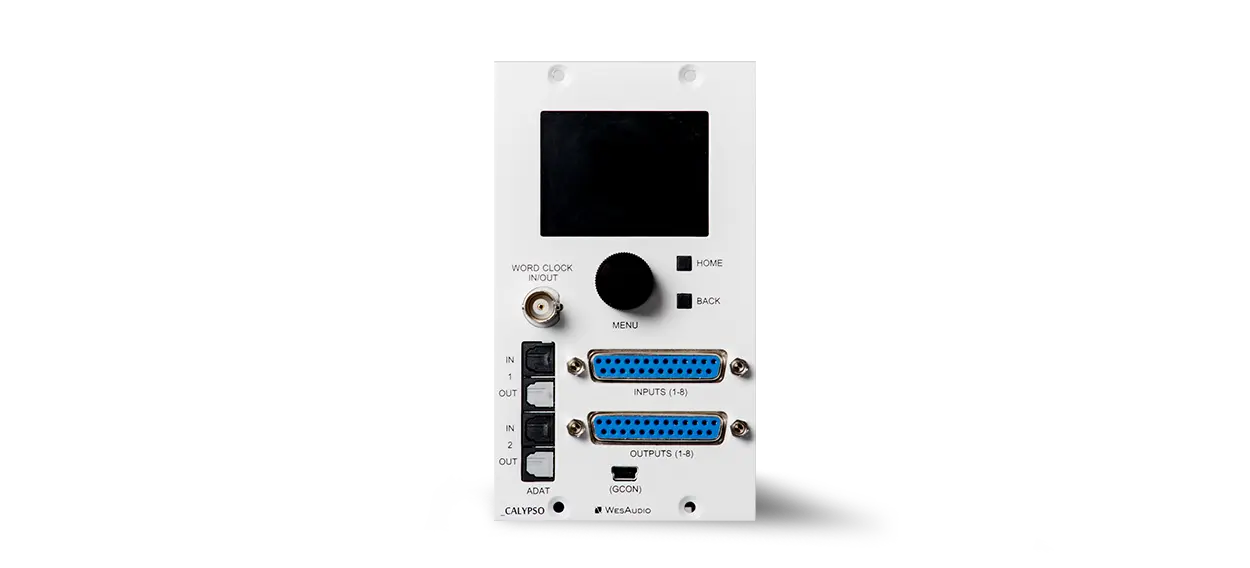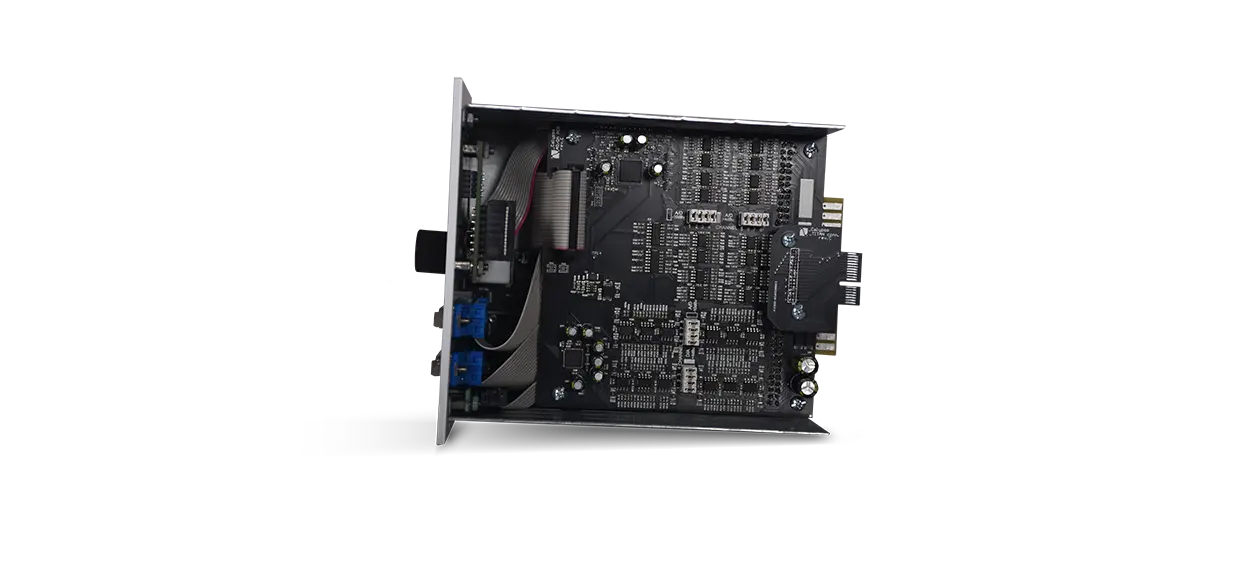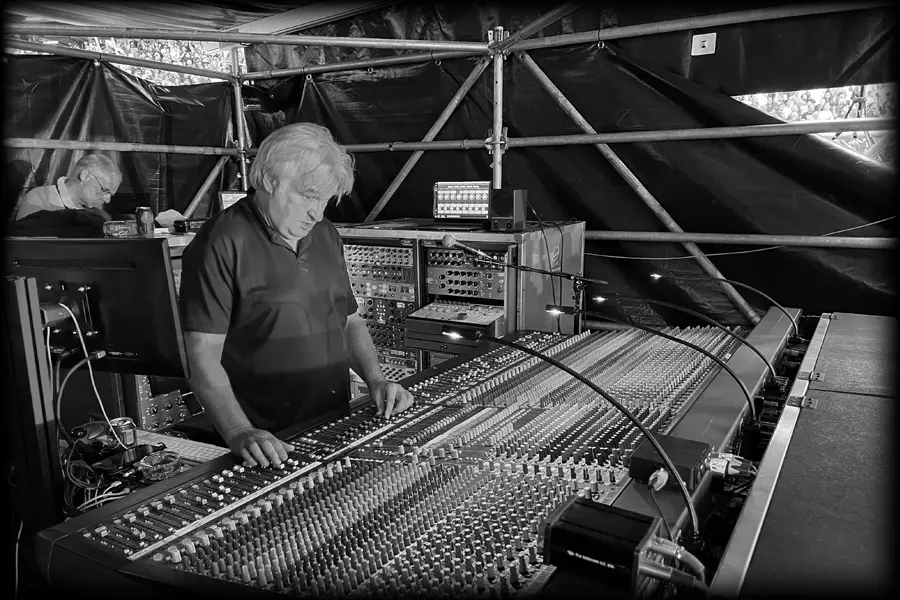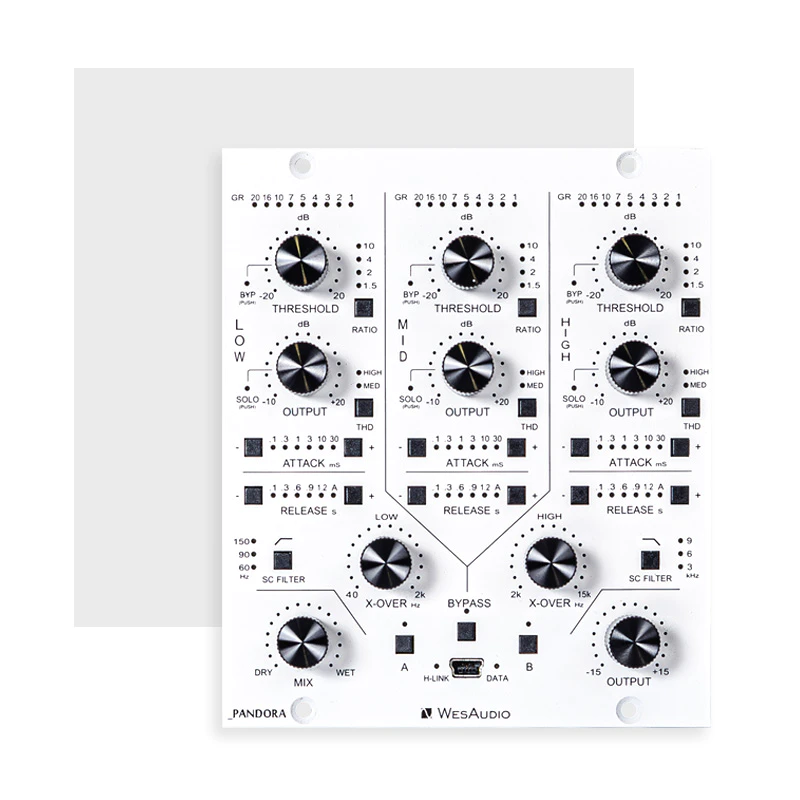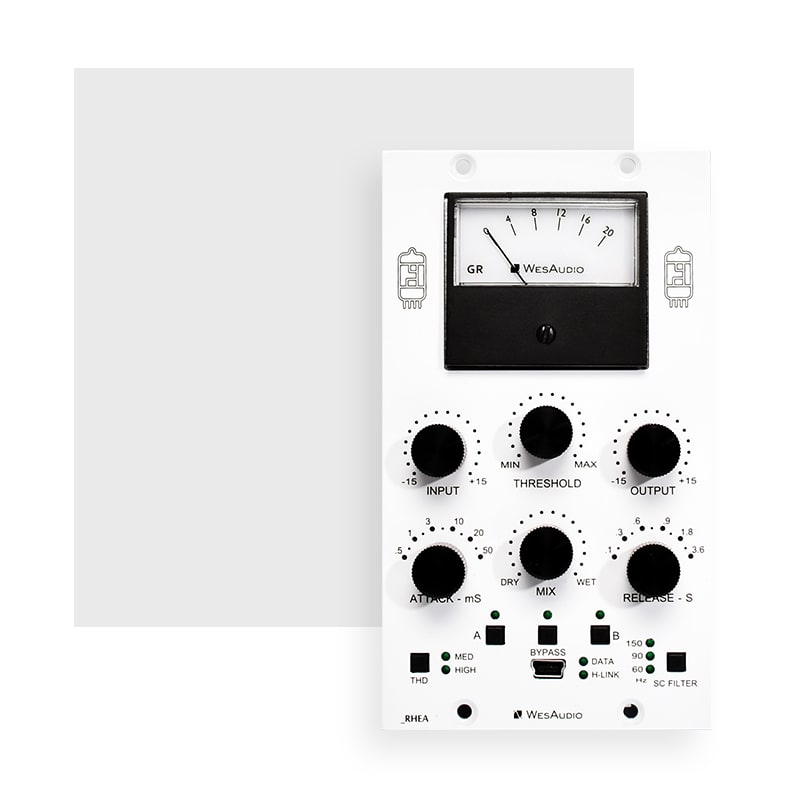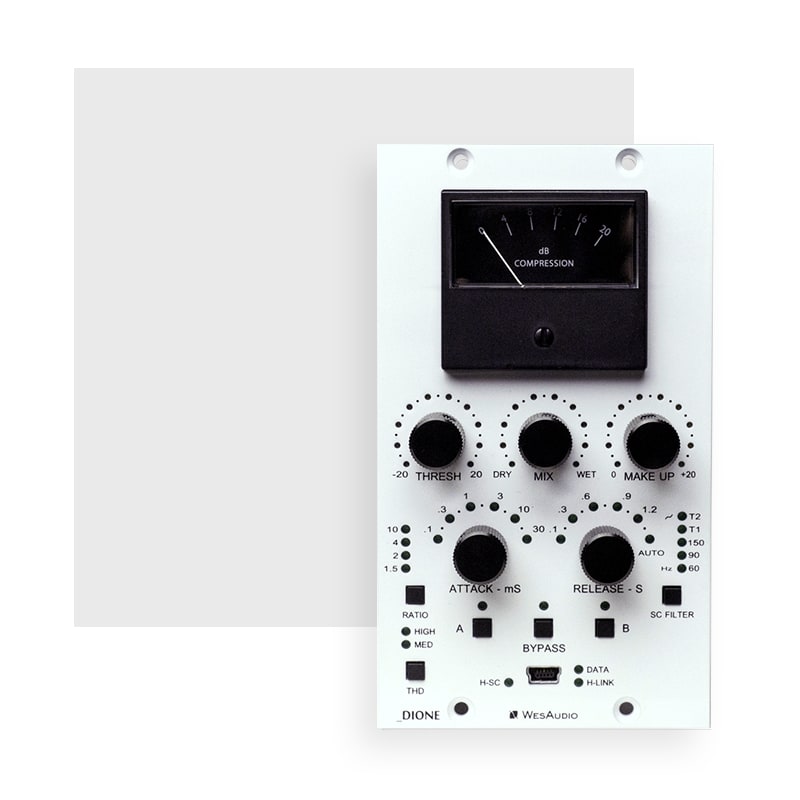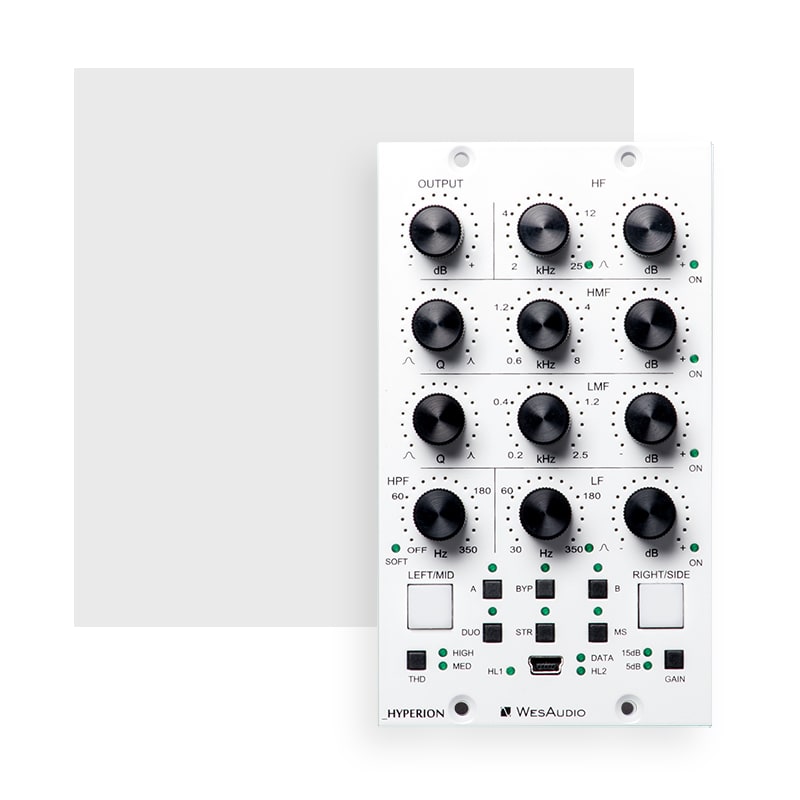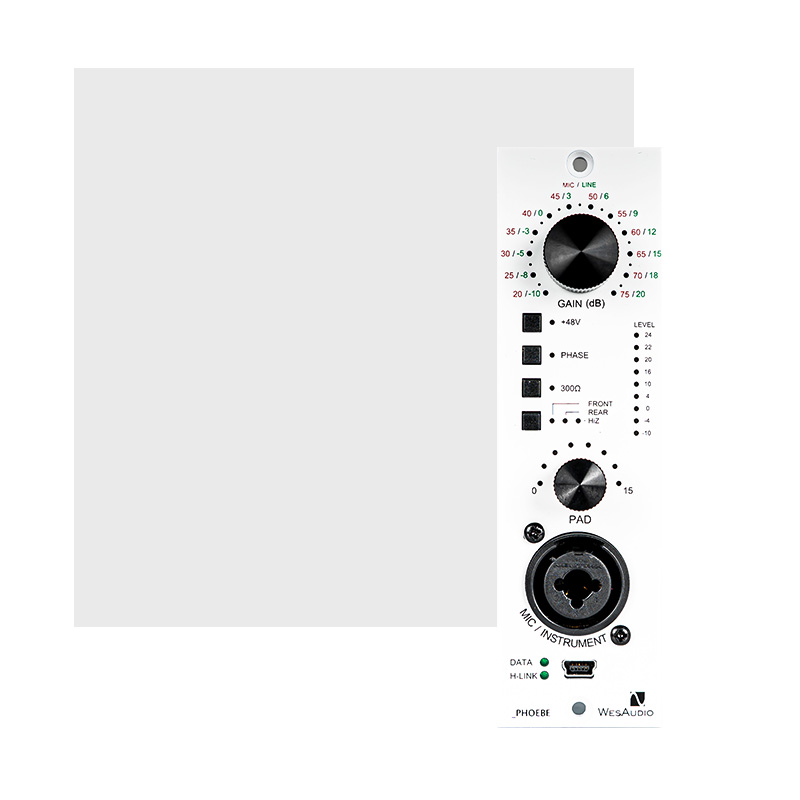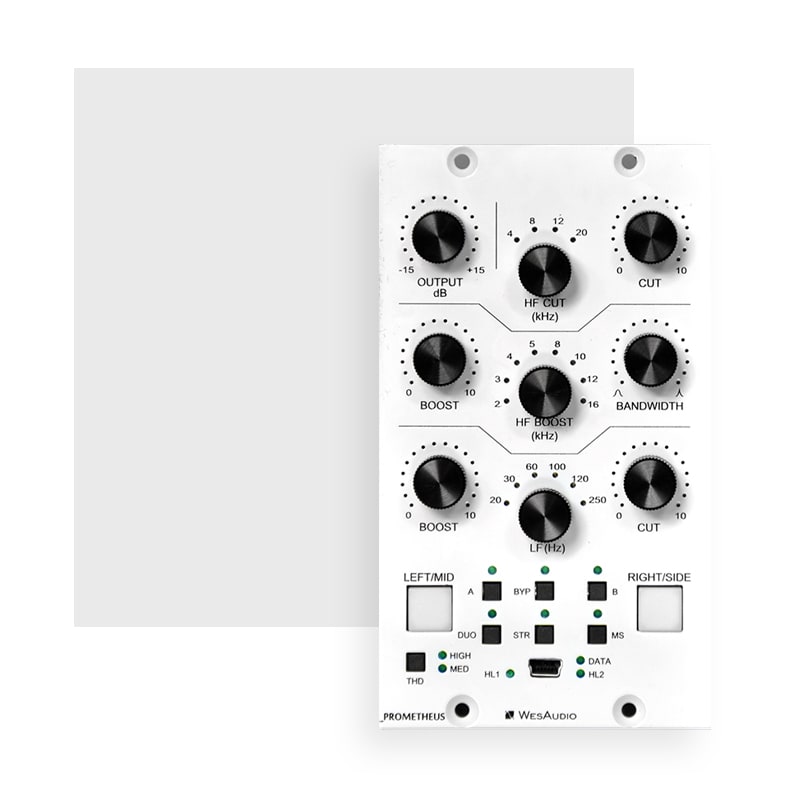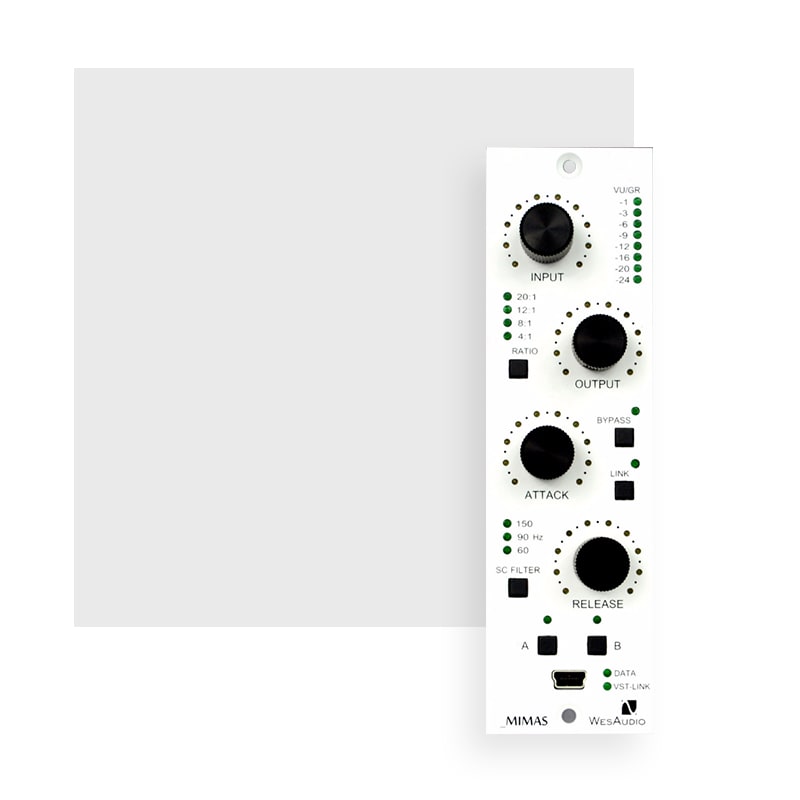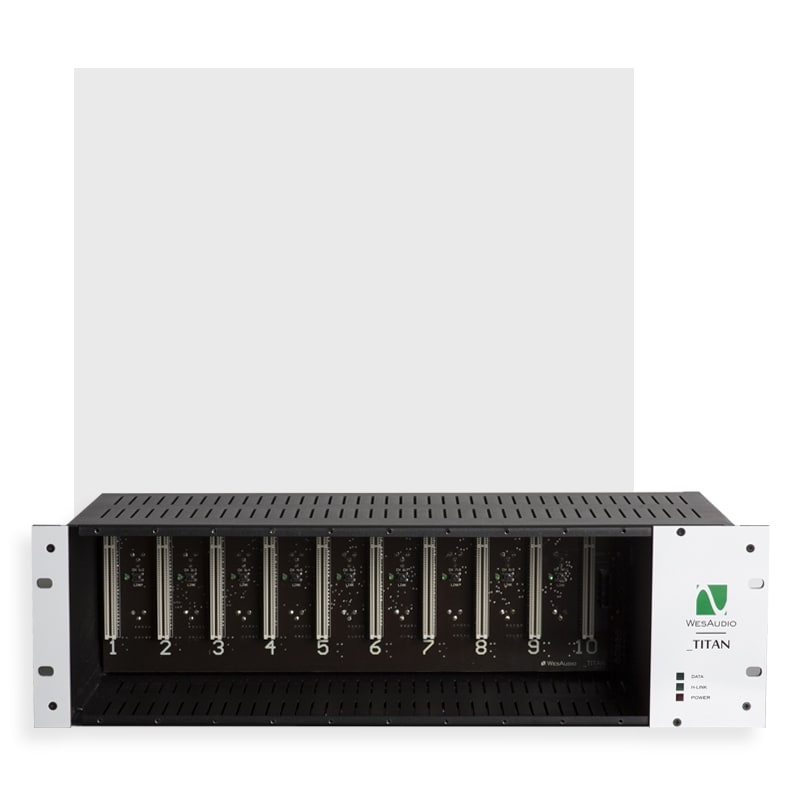_CALYPSO
NG500/500 series AD/DA converter
_CALYPSO is an audio interface designed to work in 500 series enclosure.
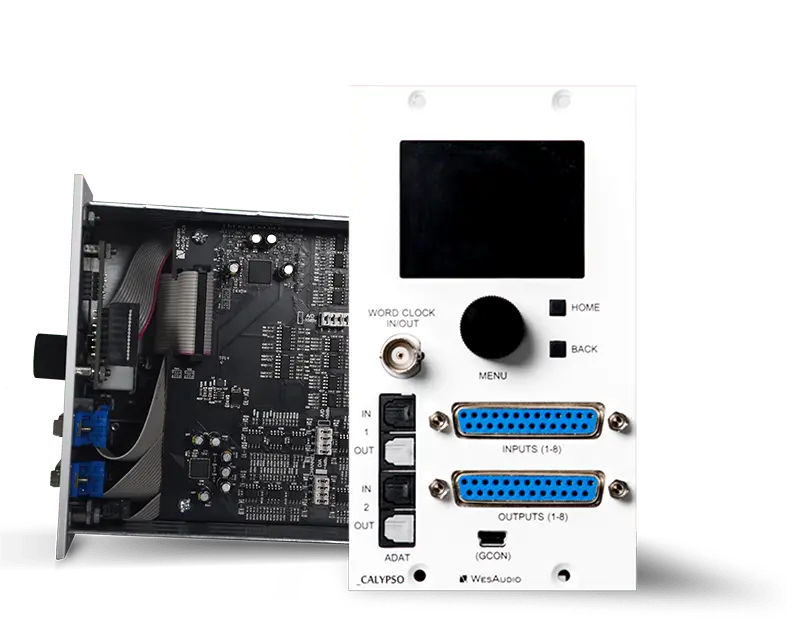
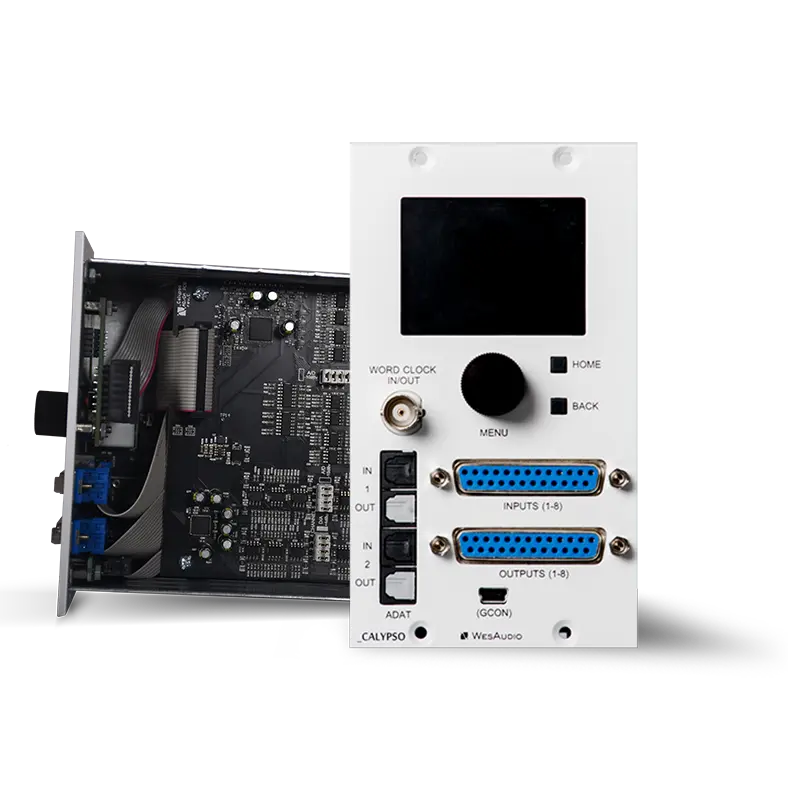
_CALYPSO
NG500/500 series AD/DA converter
_CALYPSO is a high-performance audio interface designed for 500 series enclosures. It offers state-of-the-art 8-channel AD/DA conversion and seamlessly integrates with the ng500 chassis, like the _TITAN, via the I.A.C. connector. In addition to its easy integration with ng500 chassis, it can also be used in standard 500 series enclosures through two DB25 connectors.
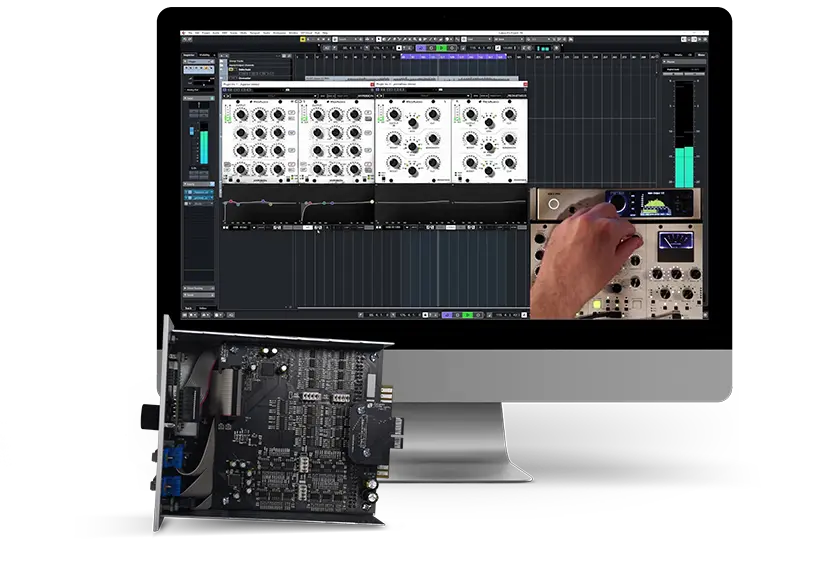
Package contents
| Device | x 1 |
| USB B mini cable | x 1 |
| Optical cable | x 2 |
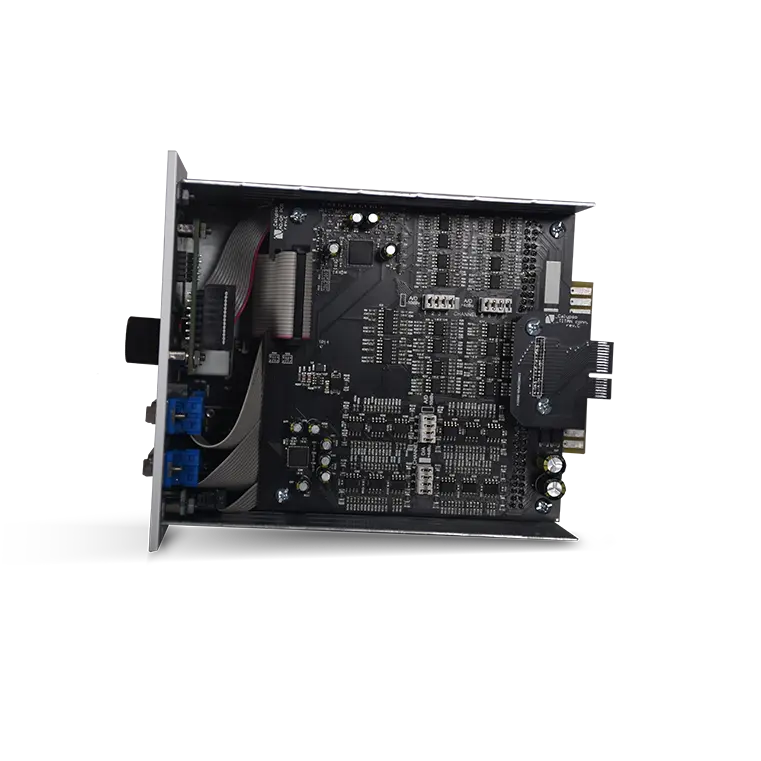
Main Features
_CALYPSO AD/DA converter
ANALOG SOUND, DIGITAL CONTROL
NG500/500 series AD/DA converter
Integration with I.A.C.
The Internal Audio Connector (IAC) inside the _TITAN chassis enables an almost wire-free setup, ensuring a clean and efficient configuration.
Read more Read moreIntegration with I.A.C.
The Internal Audio Connector (IAC) inside the _TITAN chassis enables an almost wire-free setup, ensuring a clean and efficient configuration.
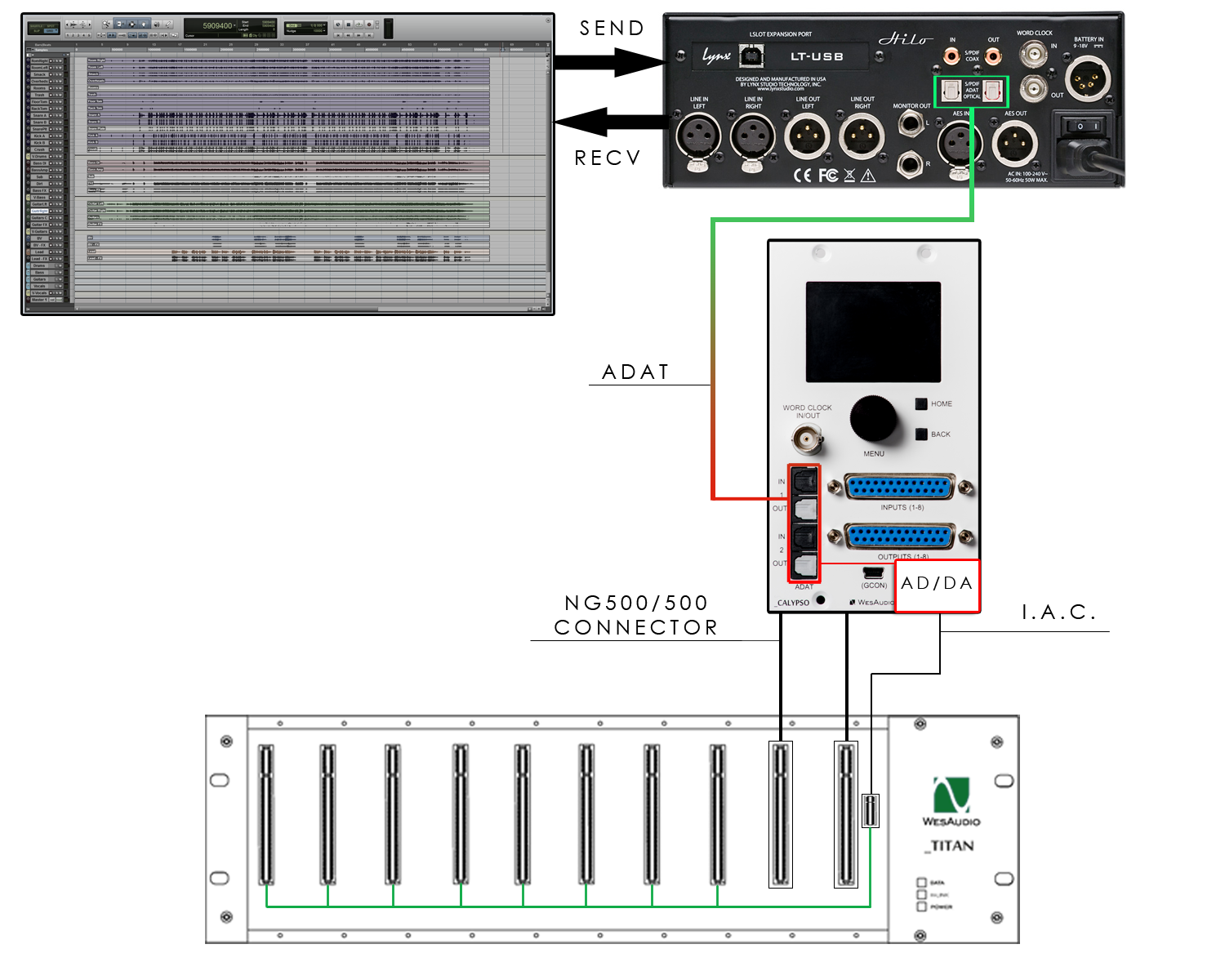
Standard 500 Chassis Support
Convinient Plug-in for I.A.C. Recall and More
Convinient Plug-in for I.A.C. recall and more!
_CALYPSO, like all ng500 units, integrates seamlessly with VST2/VST3/AAX/AU plug-ins. When used with the _TITAN, it allows management of the I.A.C. connector, enabling the input source for each module to be selected between the back XLR “IN” socket or the direct I.A.C. connection to _CALYPSO. This provides a fully recallable solution, allowing you to adjust signal routing based on your DAW session.
The plug-in supports:
- Convenient metering,
- Full unit control,
- I.A.C. recall and management,
- Sample rate selection based on DAW session.
For more details, please refer to the manual!
LCD Screen with Metering
The _CALYPSO LCD screen offers a clear overview of all configuration options, enabling effective unit management.
Read more Read more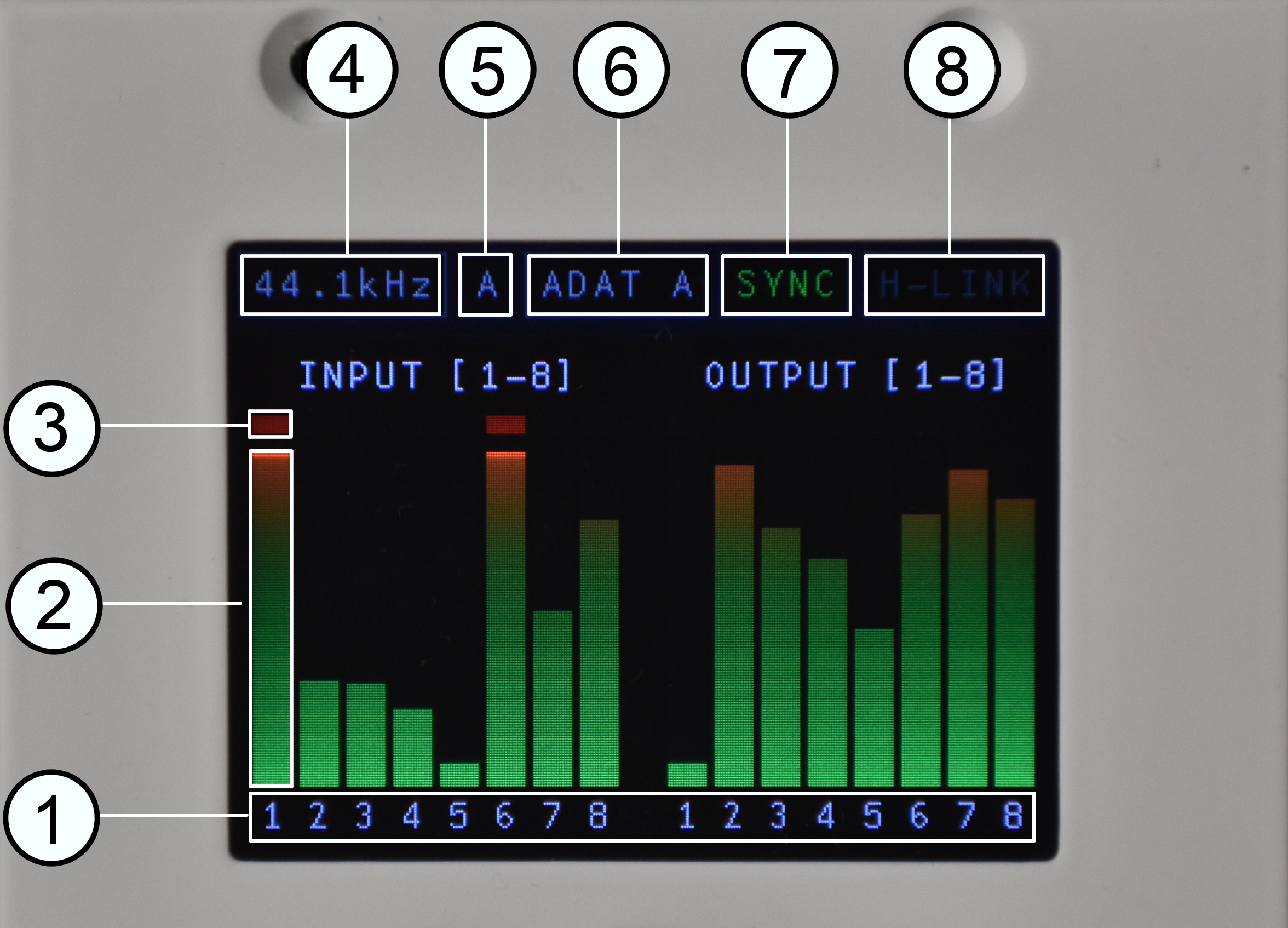
The _CALYPSO LCD screen provides all configuration details and lets you manage the unit with ease. It shows:
1) Channel numbers.
2) Fast, accurate PPM metering.
3) Clip indicators.
4) Active Sample Rate.
5) Source of the sample rate setting.
6) Clock Source.
7) Clock sync status.
8) H-LINK: Indicates whether the DAW plug-in is connected to the hardware.
_CALYPSO with TITAN
_CALYPSO, when paired with the _TITAN chassis, offers incredibly convenient connectivity!
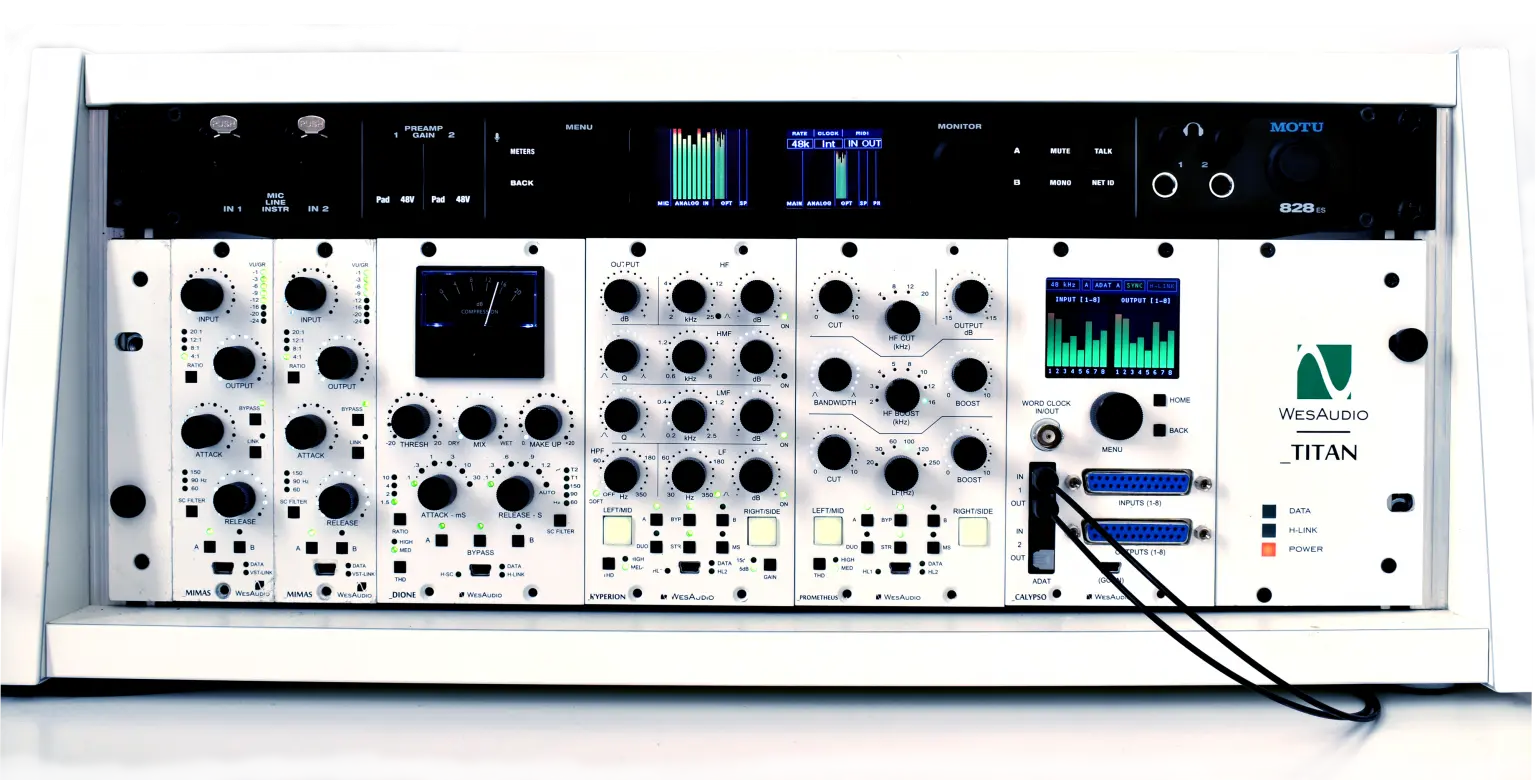
SETUP EXAMPLES
With _CALYPSO inside the _TITAN, you can effortlessly switch between different setups using the I.A.C. recall feature through the DAW plugin. The examples below offer a great starting point for exploring the many ways this functionality can be utilized!
- Recording and HW Insert Mixing Mode Setup
This setup is ideal for studios that require quick session switching. For example, if a recording session only takes up part of the day, you can easily transition back to other mixing projects without changing the setup—thanks to RECALL functionality! For a visual reference, see the picture below:
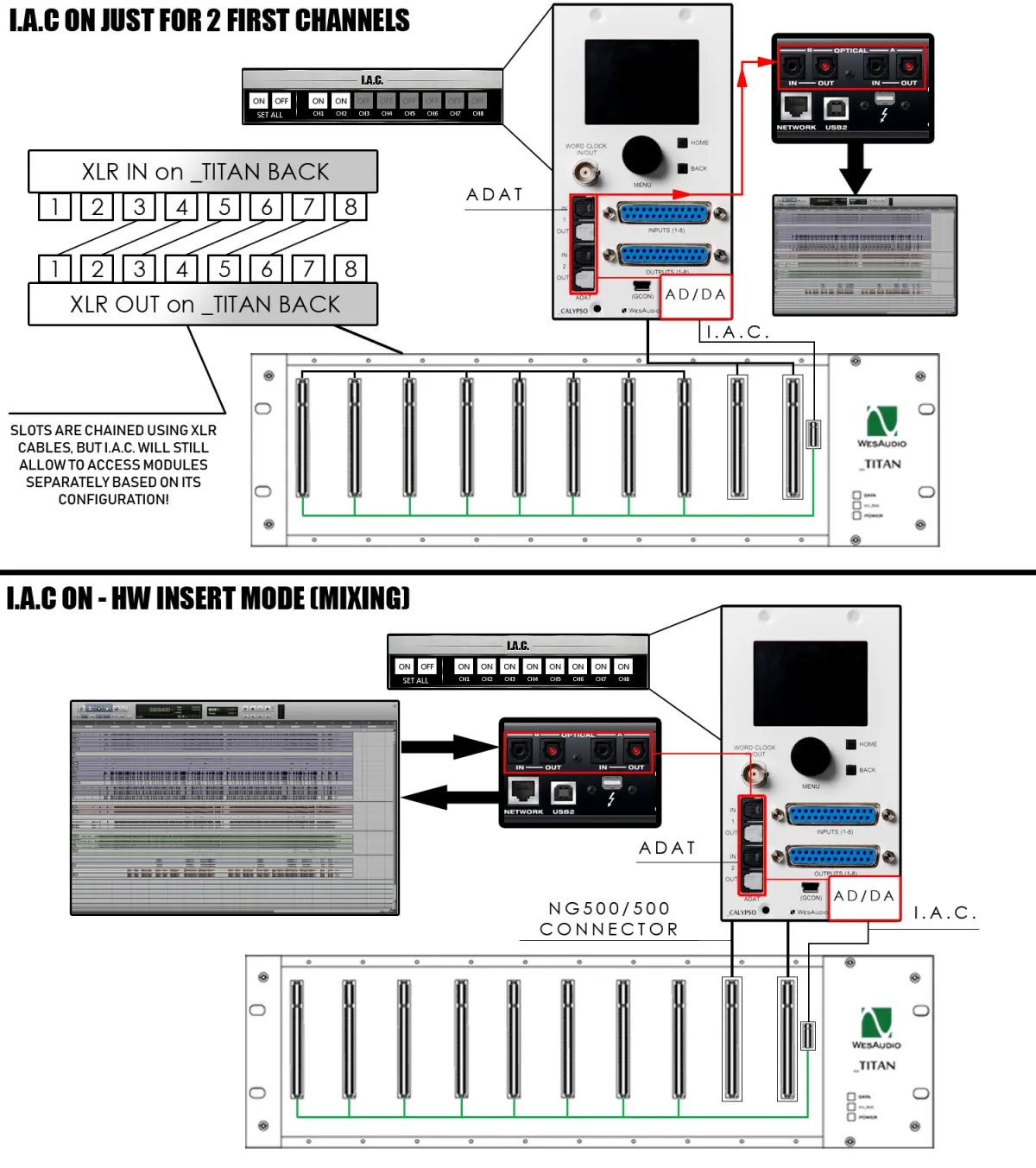
- HW Insert Mode and Units Chaining
This setup lets you switch between two modes:
– HW Insert Mode, which allows access to each module individually.
– Units Chaining, for connecting multiple modules in sequence.
This flexibility is useful for studios switching between mixing and mastering projects or when you want to chain modules for specific sessions.
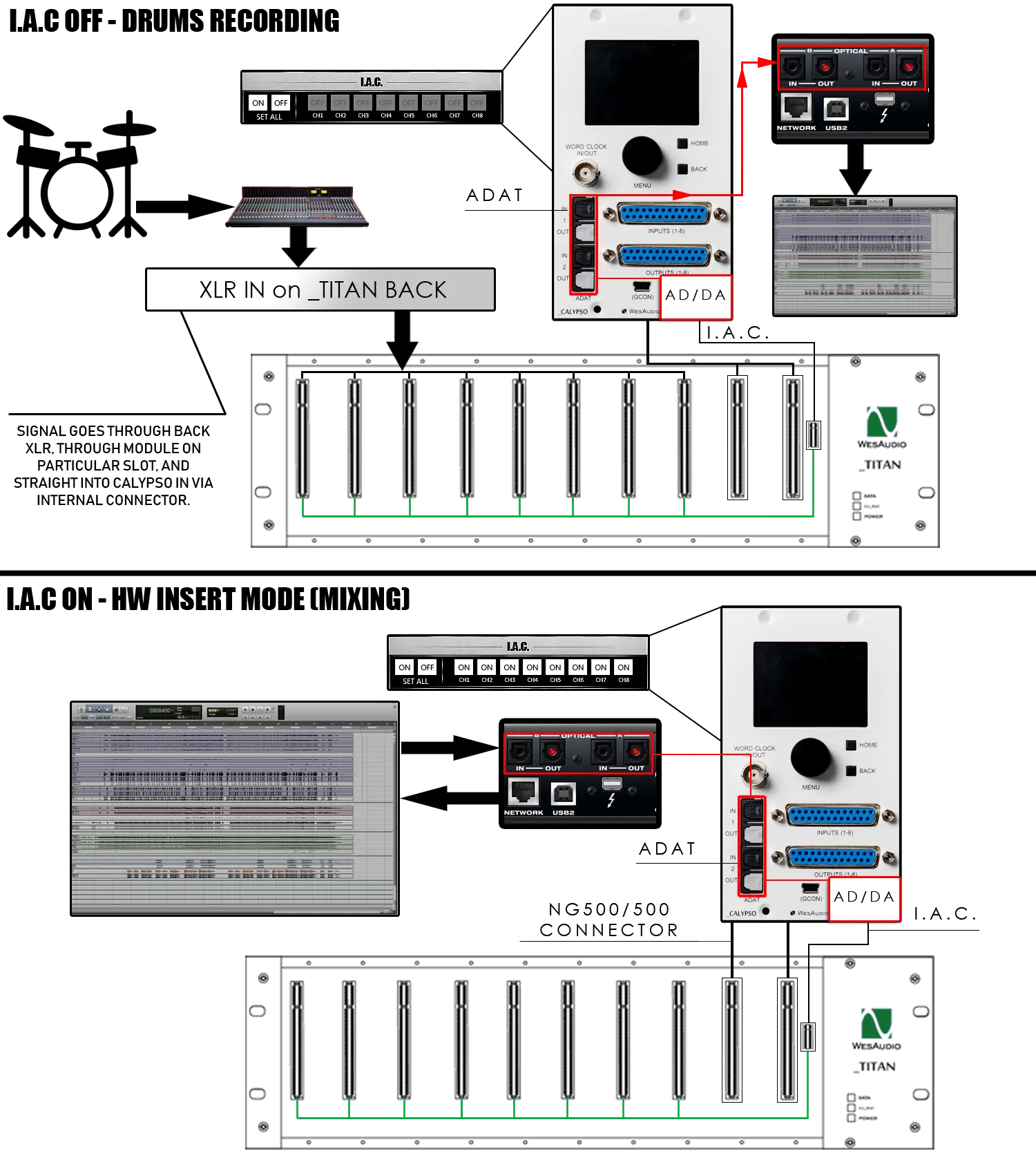
3._CALYPSO with External Outboard Gear
The I.A.C. connector allows independent access to modules. However, you may want to chain modules within the _TITAN chassis alongside external outboard gear while still using _CALYPSO I/O. To configure this setup, keep the following in mind:
– Modules in the _TITAN chassis must be last in the chain, as the “OUT” of each slot is hardwired to _CALYPSO‘s input via the I.A.C. connector.
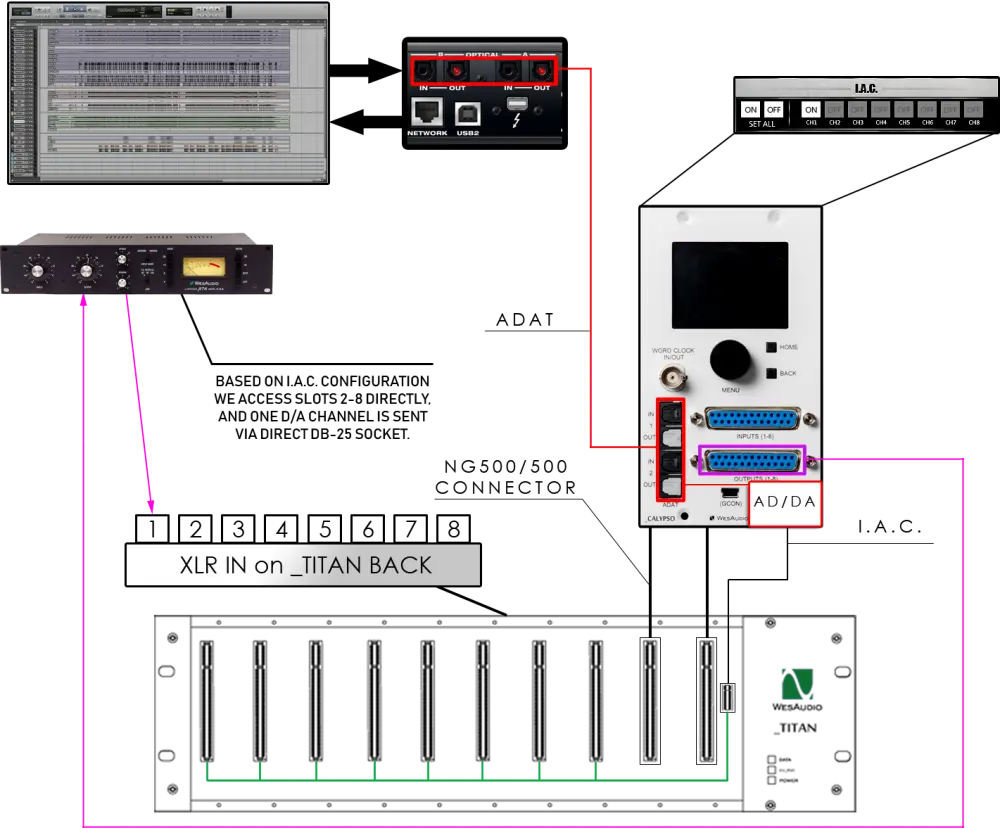
Main Features Summary:
Other Features:
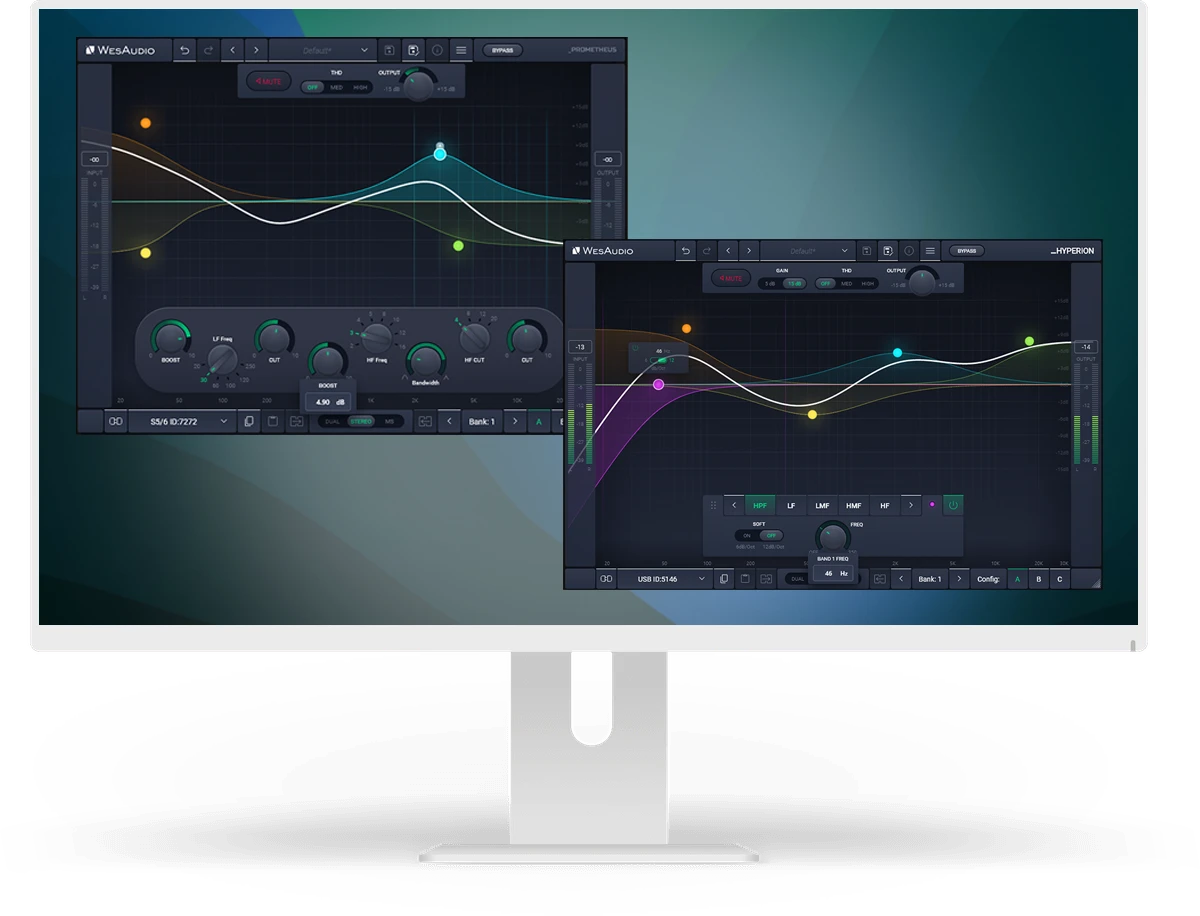
APP FOR MAC AND PC
Digital control features for fully analog units.
Specification
_Calypso specification
| Power consumption | 150mA per rail |
| Unit dimensions | 76x133x158 mm |
| Box dimensions | 105x162x234 mm |
| Unit weight | 0,75 kg |
| Box weight | 1 kg |
| Warranty | 2 years |
Inputs (ADC)
| Frequency response | 20Hz-20kHzm +/- 0.1 dB |
| THD+N(unweighted) | -108 dB (0.0004%) |
| Dynamic range (unweighted) | 116 dB |
| Gain Settings | +4 dBu/-10 dBV (selectable per input) |
| Max input level | (+4 dBu) +20 dBu |
| Input Impedance | 10K Ohms |
| Connector type | DB25/IAC |
Outputs (DAC)
| Frequency response | 20Hz-20kHzm +/- 0.1 dB |
| THD+N(unweighted) | -105 dB (0.0005%) |
| Dynamic range (unweighted) | 115 dB |
| Gain Settings | +4 dBu/-10 dBV (selectable per input) |
| Max input level | (+4 dBu) +20 dBu |
| Input Impedance | 100 Ohms |
| Connector type | DB25/IAC |
User Manual
Download _Calypso User Manual
FAQ
Frequently Asked Questions
There is no need to uninstall the WesAudio application before installing a new release. The update process will seamlessly overwrite the existing version.
To uninstall the WesAudio application, please follow the instructions below.
MacOS:
The WesAudio installation package includes a dedicated uninstaller.
Simply locate and run the WesAudio Uninstaller to remove the application from your system.
Windows:
-
Click Start on the taskbar.
-
Open Settings.
-
Select Applications from the left-side menu.
-
ClickInstalled applications.
-
In the search bar, type “WesAudio”.
-
Click the three dots on the right side.
-
Select Uninstall and follow the on-screen instructions.
If the module doesn’t react to any changes to the knobs on the front panel, the first necessary step is to rewrite firmware into the flash memory (Factory reset procedure re-writes firmware into internal flash memory – it doesn’t affect anyhow unit configuration). To proceed with factory reset, please follow below steps:
- Connect unit either:
- Through front panel USB socket,
- Or keep the unit in ng500 chassis – _TITAN, but please note that chassis has to be connected to the PC/MAC either via USB or Ethernet cable.
- POWER OFF your 500 series chassis.
- Depends on the product please press following front panel control:
- _MIMAS – RATIO button,
- _DIONE – RATIO button,
- _RHEA – THD button,
- _PROMETHEUS – HIGH CUT encoder (top-right encoder),
- _HYPERION – LMF GAIN encoder,
- _CALYPSO – MENU encoder,
- _PANDORA – HIGH SC FILTER (right button).
- While keeping this control (button/encoder) pressed, POWER ON your 500 series chassis.
- LEDs should present a strange pattern.
- Now open GConManager:
- WIN: C:/Program Files (x86)/WesAudio/GConManager.exe
- MAC: /Applications/WesAudio/GConManager.app
- Or click on the WesAudio “Tray” icon, and select “Open GConManager”
- Go to _UPGRADE application.
- Hit start!
If the module doesn’t react to any changes to the knobs on the front panel, the first necessary step is to rewrite firmware into the flash memory (Factory reset procedure re-writes firmware into internal flash memory – it doesn’t affect anyhow unit configuration). To proceed with factory reset, please follow below steps:
- Connect the unit to either USB or Ethernet.
- POWER OFF your unit.
- Depends on the product please press following front panel control:
- ngBusComp – far left Ratio on Channel 1 (Ratio “-”),
- _TITAN – any LINK button between slot connectors,
- ngTubeEQ – THD encoder on Channel 1,
- ngTubeComp – Saturation encoder on Channel 1,
- ng76 – “IN MODE” button,
- ngLEVELER – use a small screwdriver and press button available on the rear panel via a small hole in the chassis.
- While keeping this control (button/encoder) pressed, POWER ON your unit.
- LEDs should present a strange pattern.
- Now open GConManager:
- WIN: C:/Program Files (x86)/WesAudio/GConManager.exe
- MAC: /Applications/WesAudio/GConManager.app
- Or click on the WesAudio “Tray” icon, and select “Open GConManager”
- Go to _UPGRADE application.
- Hit start!
This is a very common issue and in most cases the root cause lies in the connection of the unit and audio interface. If that happens it should be checked if audio interface input isn’t connected to the chassis input and if audio interface output isn’t connected to chassis output. As this initially would seem to be entirely wrong and shouldn’t work at all, as all our units implement “True Bypass” via relays, the unit will pass a signal when the bypass is engaged. The reason for that is that the relay is in fact hard wiring input to the output, and thus the unit will pass the signal, as it doesn’t go through any active circuit of the unit.
This is actually how it is supposed to work, so after the plug-in instance is created, please use a small triangle button which usually is on the bottom side of the plug-in and select proper HW ID from the drop down menu. If the drop down menu doesn’t list any hardware units, please check Your connectivity and other possible root causes in this FAQ.
This is a wide topic, and there may be at least several root causes, but there are few things that should be checked. However, the first and most important thing is to double check that GConManager doesn’t list this device in the _CONFIG app. If this is the case, it means that WesAudio unit can’t connect on the OS level, and some of the below steps may help:
- First of all double check if module connection is properly executed, this procedure is described here.
- USB specification indicates that USB 2.0 works up to 5 meters. This is however not entirely true, as it strongly depends on the peripherals that unit is connected to. Even if our modules are USB 2.0 compatible, your USB port could support USB 3.0 – USB is a backward compatible protocol, so it may be that USB 3.0 cable length limit should be considered which is 2 meters. We would recommend having a USB cable up to 2 meters to remove those limitations from the equation.
- USB HUB is very common root cause to those problems, if module can’t connect via HUB – just for the sake of the test, it is mandatory to connect unit directly to PC/MAC to verify if the problem isn’t caused by it.
- Please note any system warnings attached to “WesAudio Tray Icon”.
As USB controllers have limited capacity it could be a reason for random unit disconnection. Usually, it happens when a lot of USB devices are plugged into the PC/MAC. The usual behavior would be that the unit works normally, and after reboot it doesn’t, but it strongly depends on the OS implementation so exact reaction could be a little bit different. If this is suspected, just for the test, it would be good to disconnect most of the devices from the USB ports, reboot PC/MAC and double check the connectivity from stability point of view. If it leads to the conclusion that this is the root cause of the problem, we would recommend using a decent USB hub, and ideally a TB/USB dock station which tends to offload a lot of responsibilities from our PC/MAC.
If the unit was working fine, and suddenly it couldn’t connect (it is not visible in the GConManager _CONFIG app) that could lead to the conclusion that some devices were added to our USB line, and we could have problems with the USB controller inside PC/MAC. In that case please check the description in the above “Unit disconnects by itself”.
GConManager in Admin mode enables special functionalities which are used during WesAudio units calibration.
Starting from GCon 15, Admin mode can be activated through the GCon Manager app:
- Open the GCon Manager app.
- Navigate to Settings.
- Click the padlock icon to unlock the settings.
- Check the Admin Mode box to enable it.
Alternatively, Admin mode can be activated by following these instructions:
OSX:
- Please open terminal.
- Copy-Paste following command:
open /Applications/WesAudio/GConManager.app --args --admin
WINDOWS:
- Go to “START” and open “Command Line”.
- copy paste this command:
"c:\Program Files (x86)\WesAudio\GConManager.exe" --admin

